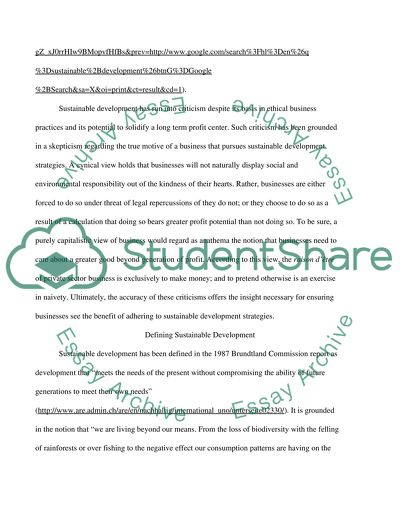Cite this document
(“Sustainable Development Essay Example | Topics and Well Written Essays - 1500 words”, n.d.)
Retrieved from https://studentshare.org/sociology/1499178-sustainable-development
Retrieved from https://studentshare.org/sociology/1499178-sustainable-development
(Sustainable Development Essay Example | Topics and Well Written Essays - 1500 Words)
https://studentshare.org/sociology/1499178-sustainable-development.
https://studentshare.org/sociology/1499178-sustainable-development.
“Sustainable Development Essay Example | Topics and Well Written Essays - 1500 Words”, n.d. https://studentshare.org/sociology/1499178-sustainable-development.


